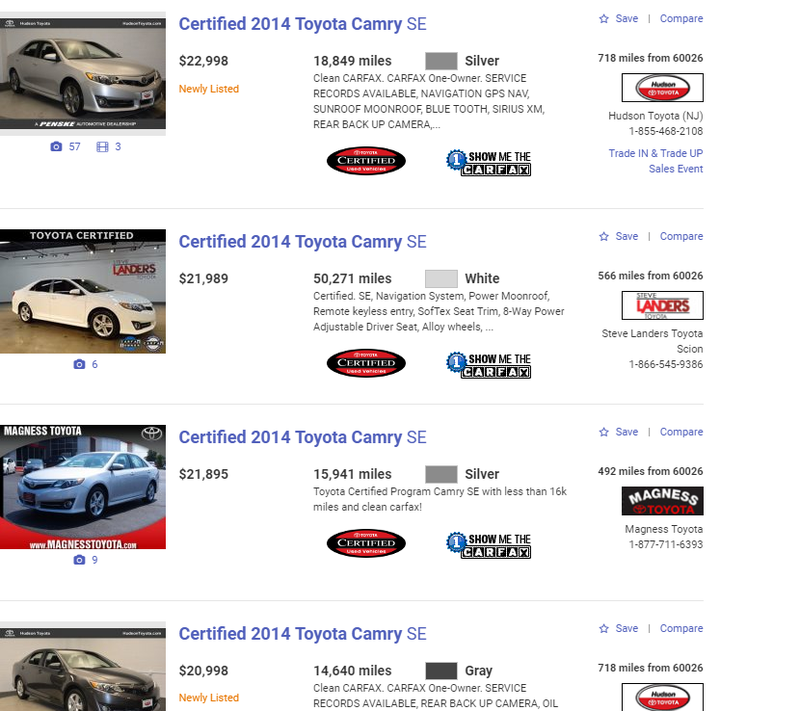The latest information about Why Would A Dealer Not Certify A Used Car that you need can be found in this article, all of which we have summarized well.

Why Would a Dealer Not Certify a Used Car?
I cherish my first car, a pre-owned Honda Civic, which has given me years of dependable driving. However, when I went to trade it in for a newer model, I was surprised to learn that the dealership would not certify it. Intrigued, I delved into the reasons why a dealer might decline to certify a used car, uncovering valuable insights that I’m eager to share.
Understanding why a used car may not qualify for certification is crucial for both buyers and sellers. Certification often signifies a vehicle’s high standards, providing peace of mind and potentially increasing its value. By exploring the factors that influence a dealer’s certification decision, we can make informed choices when buying or selling a used car.
Dealer Certification Standards
Vehicle certification involves a thorough inspection process that evaluates the car’s mechanical condition, safety features, and overall quality. Dealers establish specific criteria to determine if a used car meets their standards for certification.
These criteria typically include:
- Mileage limits
- Year and model restrictions
- Vehicle history checks
- Mechanical inspections
- Safety equipment assessments
Reasons for Declining Certification
When a dealer declines to certify a used car, it usually indicates that the vehicle does not meet the established certification standards. The most common reasons for non-certification include:
1. Excessive Mileage or Age
Dealers typically have mileage and age limits for certified vehicles. If a car exceeds these limits, it may not be eligible for certification, as excessive mileage or age can increase the likelihood of mechanical issues.
2. Failed Mechanical Inspection
During the mechanical inspection, the dealer’s technicians thoroughly examine the car’s engine, transmission, brakes, and other critical components. If the inspection reveals any major problems or repairs are needed, the car may not be certified.
3. Negative or Incomplete Vehicle History
A negative vehicle history, such as a severe accident or extensive repairs, can disqualify a car from certification. Additionally, if the car’s history is incomplete or inaccurate, the dealer may not be able to verify its condition adequately.
4. Safety Equipment Issues
Certification requires that the car meets certain safety standards. If the car lacks important safety features, such as airbags, anti-lock brakes, or electronic stability control, it may not be eligible for certification.
5. Cosmetic or Minor Issues
While cosmetic issues like dents or scratches may not affect the car’s performance, they can impact its overall appearance. Dealers may choose not to certify a car if it has significant cosmetic damage.
Remedies for Non-Certification
If a dealer declines to certify a used car, there are steps you can take:
1. Negotiate with the Dealer
You may be able to negotiate with the dealer to have the car certified if you are willing to pay for necessary repairs or if there are factors the dealer may not be aware of, such as a clean maintenance history.
2. Seek a Second Opinion
Consult with an independent mechanic to get a second opinion on the car’s condition. If the mechanic finds no major issues, you may be able to pressure the dealer to reconsider their certification decision.
3. Buy the Car Without Certification
If the car is in good condition but does not meet the dealer’s certification standards, you can still purchase it without certification. However, be aware that this may affect the car’s resale value in the future.
Frequently Asked Questions (FAQs)
-
Q: What are the benefits of buying a certified used car?
A: Certified used cars typically come with a warranty, have undergone a thorough inspection, and meet the dealer’s standards, providing peace of mind and potentially increased value. -
Q: Can I certify a used car myself?
A: Technically, you cannot self-certify a used car. Vehicle certification is typically done by dealerships or manufacturers according to their established criteria and standards. -
Q: Does non-certification necessarily mean the car is not roadworthy?
A: Not necessarily. A car that is not certified may still be in good condition and safe to drive. However, it may not meet the dealer’s specific certification standards or have issues that require attention.
Conclusion
Understanding the reasons why a dealer might not certify a used car is crucial for both buyers and sellers. By considering the factors that influence certification decisions, such as mileage, mechanical condition, and safety equipment, we can make informed choices when purchasing or trading in a used car.
Remember, a dealer’s decision on certification does not necessarily reflect the car’s overall condition. If you are interested in buying a used car, be sure to research the vehicle’s history, have it inspected by an independent mechanic, and consider your own driving needs and preferences before making a decision.
Thank you for reading. Continue to visit our website for more informative and engaging content.

Image: www.youtube.com
You have read Why Would A Dealer Not Certify A Used Car on our site. Thank you for your visit, and we hope this article is beneficial for you.